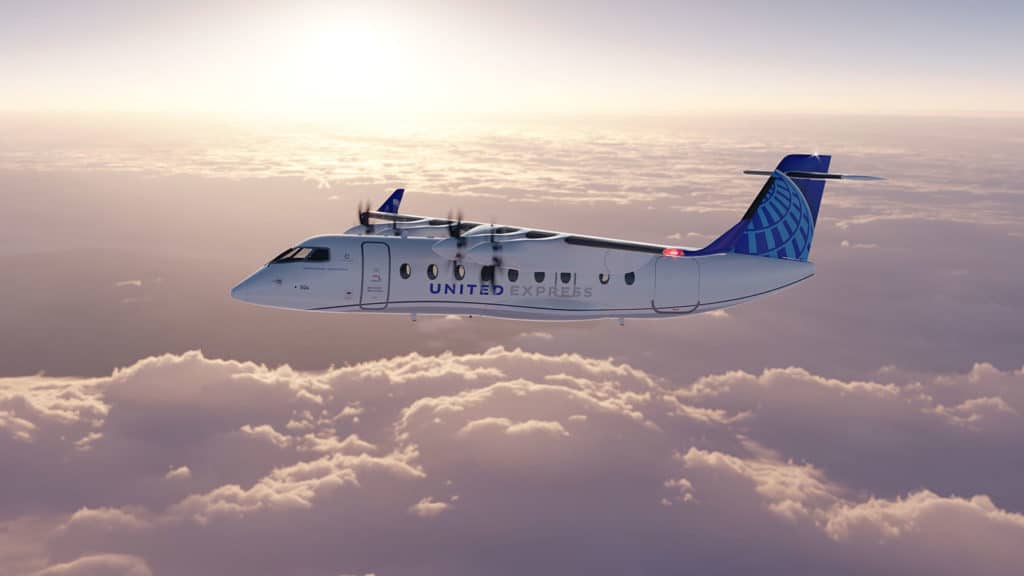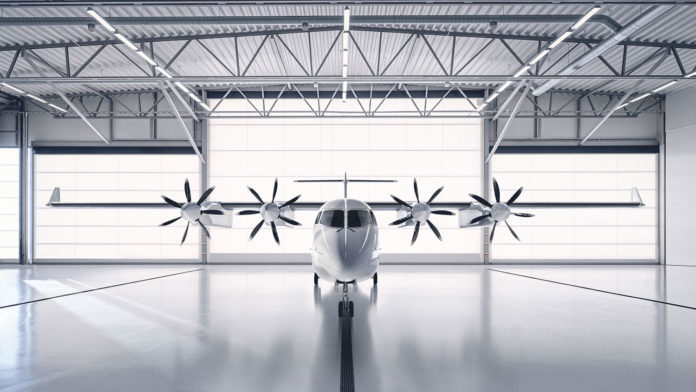Swedish startup Heart Aerospace is developing the ES-19, a 19-seat electric aircraft that has the potential to fly customers up to 250 miles (402 km) before the end of this decade. The electric aircraft is designed for short trips that simply aren’t economically feasible for conventional planes.
The startup has just attracted a new round of investors, including United Airlines Ventures (UAV), Breakthrough Energy Ventures (BEV), and Mesa Airlines, to help get its turboprop plane off the ground.
After a seed round in 2019, Heart Aerospace’s now completed Series A financing round is the first large inflow of capital from external investors. The company receives the fresh investment of the equivalent of $35 million from United Airlines Ventures, the Mesa Air Group, and Breakthrough Energy Ventures, among others, to help get its turboprop plane off the ground. United Airlines and Mesa Airlines also plan to incorporate 100 ES-19 aircrafts each into their fleet a few years down the track.

The first generation of the model is said to have a maximum range of up 250 miles (402 km) with today’s lithium-ion batteries. The startup announced that the range would increase in line with future advances in battery technology.
By utilizing electric motors instead of jet engines, and batteries instead of jet fuel, Heart’s ES-19 aircraft will have zero operational emissions. Seating 19 passengers, the ES-19 aircraft will also be larger than any of its all-electric competitors and will be designed to operate on the same types of batteries used in electric cars.
The zero-emissions, low-noise aircraft can operate on 750 m runways, making new use of the vast network of small airports close to city centers. The company imagines the electric plane transporting passengers on short flights over mountainous terrain where travel by road would be impractical, or perhaps hopping between islands.
“We expect the short-haul regional air travel market to play a key role in the evolution of the electric aircraft. As battery technology improves, larger-gauge aircraft should become viable, but we’re not going to wait to begin the journey,” Leskinen said. “That’s why we’re looking forward to beginning our work with Heart, so that, together, we can scale the availability of electric airliners and use them for passenger flights within the next five years.“
Heart Aerospace expects to finalize the design for its ES-19 plane by 2023 and conduct its first flight in the first quarter of 2024. Heart Aerospace plans to launch the 19-seat electric aircraft commercially in 2026, allowing the craft to enter service in the final quarter of that year.
